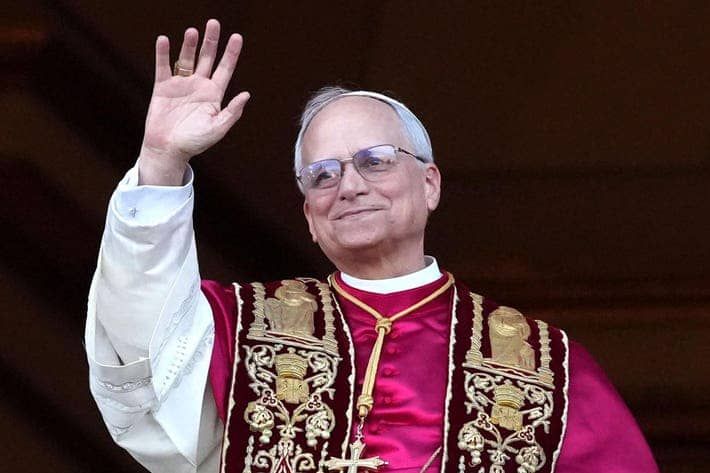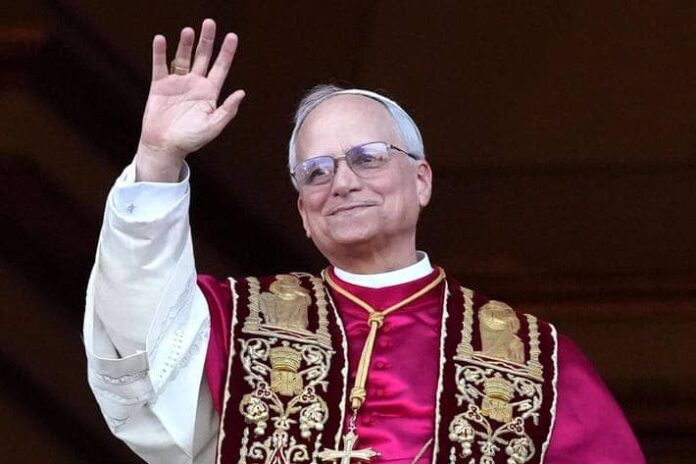By Burnett Munthali
In a historic and sobering first Sunday blessing since ascending to the papacy, Pope Leo XIV issued a chilling warning to the world about the looming threat of a third world war.
Speaking from the balcony of St. Peter’s Basilica to thousands gathered in Vatican City, the newly elected pontiff did not shy away from addressing the growing global tensions.
He urged humanity to awaken to the signs of the times, warning that the world stands perilously close to another catastrophic conflict on a global scale.

Pope Leo XIV, elected just days earlier, used his debut Angelus address not for celebration but for solemn reflection.
He stated with conviction that geopolitical divisions, economic disparities, and the unchecked rise in nationalism and militarism are creating conditions “eerily similar” to those that preceded the previous two world wars.
Observers noted that the pontiff’s words carried not only a pastoral urgency but also a clear political message to world leaders, calling for dialogue, humility, and immediate action to prevent escalation.
He emphasized the sacredness of human life and called on all nations, regardless of ideology or religion, to recommit themselves to peace.
Pope Leo XIV warned that the failure to do so would result in consequences more devastating than anything humanity has witnessed before.
He cited ongoing conflicts in Eastern Europe, the Middle East, and parts of Africa as signs that the world has become desensitized to violence and human suffering.
With emotional depth, he lamented the plight of innocent civilians—women, children, the elderly—who are often the first to suffer and the last to be heard.
The pontiff also rebuked the arms industry and those who profit from war, calling their actions “a betrayal of the human family.”
In his message, Pope Leo XIV called on Christians worldwide to become “artisans of peace,” promoting reconciliation in their homes, communities, and nations.
He urged young people not to lose hope but to become active participants in building a future free from the horrors of war.
The Pope’s warning resonated deeply with many, especially in regions already grappling with political instability, displacement, and poverty.
Faith leaders from different religions have since echoed the Vatican’s concern, calling the Pope’s words a “moral alarm” that must not be ignored.
In the hours following his speech, social media lit up with reactions, many praising his courage to speak the truth so early in his pontificate.
Some geopolitical analysts have interpreted the Pope’s message as a veiled critique of superpower rivalries, particularly between the United States, Russia, and China.
The Vatican has not clarified whether the pontiff plans to take diplomatic initiatives in hotspots like Ukraine, Gaza, or Sudan, but sources close to the Holy See say mediation efforts are already being quietly discussed.
Many observers believe Pope Leo XIV’s early prioritization of global peace sets the tone for a pontificate that will be heavily defined by advocacy for the vulnerable.
This speech is seen as the strongest opening address from a Pope in modern history in terms of its geopolitical urgency and spiritual gravity.
It has drawn comparisons to Pope John XXIII’s 1963 encyclical Pacem in Terris, which was issued during the height of the Cold War.
By issuing such a prophetic warning so early in his leadership, Pope Leo XIV appears poised to be a voice of conscience in an increasingly fragmented world.
His words serve not just as a warning but as a challenge to every citizen, government, and institution to choose peace over destruction.
As the world listens, the question remains: Will the global community heed the warning of the Holy Father, or will history repeat its darkest chapters?
Pope Leo XIV’s message may well become a defining moment for this generation—and a call to action for all who cherish peace.



